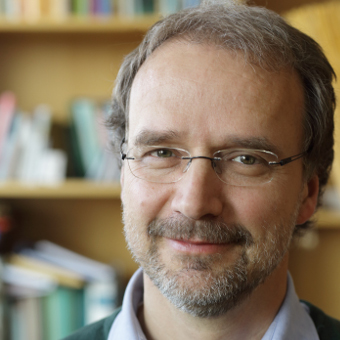
In Chile, there are various political initiatives that address bioeconomy-relevant issues. However, a dedicated national bioeconomy policy strategy that bundles these initiatives does not yet exist.
In 2009, Chile signed the OECD Declaration on Green Growth. With this, the country pledged to introduce policy reforms and avoid future practices that could hinder green growth, such as the continued subsidization of fossil fuels. Four years later, the Chilean government adopted a National Strategy for Green Growth, with the aim of driving the development of a market for environmental goods and services, as well as promoting environmentally friendly innovations and green jobs.
Historically, Chilean science and technology policy has been characterized primarily by the development, establishment and coordination of funds and programs to promote innovation. It was not until the reorientation in 2005 that the country began to define thematic areas and increasingly develop political strategies. Since then, three national innovation strategies have been developed (2008, 2012, 2020).
In 2017, the Agency for Sustainability and Climate Change (ASCC) was established to promote Chile's economic restructuring towards a climate-friendly economy with higher resource efficiency and better adaptive capacities to new environmental conditions. The agency works on various bioeconomy-related issues. Its agenda includes forestry, agriculture, aquaculture, transportation, water resources, waste, and cities as priorities until 2030.
With the reform process of the Chilean research and innovation system introduced under the Piñera government, since 2018 responsibility has been with the newly established Ministry of Science, Technology, Knowledge and Innovation (CTCI) and the National Agency for Research and Development (ANID). Together with ANID, Chile's economic development agency CORFO (Corporación de Fomento de la Producción) is the driver for bioeconomy-related developments in the country. It has various funds at its disposal to promote innovations, entrepreneurship and technological developments in the field of nature-based solutions, such as ecological construction.
Biotechnology
In 2015, the Chilean government launched the Strategic Development Initiative for Biotechnology. The public-private partnership resulted in the Biotechnology Strategy 2030, presented by CORFO in 2018, whose main objective is to position Chile as a hub for the development of applied biotechnology. The strategy envisions creating a favorable environment for biotechnology development in the country, providing appropriate infrastructure and human capital, and promoting innovation and investment in biotech companies.
The most recently published National Strategy for Science, Technology, Knowledge and Innovation (2020) also highlights biotechnology as a driver for technology-based development in the country.
With the Startup Ciencia program, the Chilean Ministry of Science, CORFO and ANID aim to strengthen the knowledge economy in Chile by supporting young knowledge- and technology-based companies. Funding, mentoring and networking opportunities are designed to help build a relevant innovation system. In 2022, the program opened the bidding round with a funding volume of $7.35 million. Start-ups in the fields of biotechnology, artificial intelligence, energy, materials and new materials, and biomedical and pharmaceutical technologies are among those receiving funding.
With the Startup Ciencia program, the Chilean Ministry of Science, CORFO and ANID aim to strengthen the knowledge economy in Chile by supporting young knowledge- and technology-based companies. Funding, mentoring and networking opportunities are designed to help build a relevant innovation system. In 2022, the program opened the bidding round with a funding volume of $7.35 million. Start-ups in the fields of biotechnology, artificial intelligence, energy, materials and new materials, and biomedical and pharmaceutical technologies are among those receiving funding.
Wood construction
Wood construction also plays a key role in Chile's bioeconomy development. In a 2018 strategic paper, CORFO points to the role of wood construction in making manufacturing more sustainable. In particular, new business opportunities for Chilean companies would arise from its combination with new technologies such as 3D modeling, robotics and VR technology.
Circular economy
In recent years, the concept of the circular economy has increasingly found its way into Chilean politics. The Roadmap to the Circular Economy 2040, initiated by the Ministry of Environment, aims to shape the transition to a circular economy. The goal is to achieve a sustainable and equitable participatory development of the country, in which natural resources are used responsibly and efficiently, and sustainable production and consumption patterns are promoted. The paper makes clear that the circular economy vision for Chile goes far beyond "simple" recycling. Instead, the entire life cycle of products, services and processes is considered systemically in order to establish more sustainable production and resource management systems. The focus is also on protecting biological cycles and associated regeneration strategies to strengthen the resilience of ecosystems.
This year, the Law on Extended Producer Responsibility (LeyREP), which was already enacted in 2016, comes into force. It aims to reduce waste generation and promote reuse in the country. In doing so, the Chilean government is concerned with changing consumer behavior in general and internalizing the principle of continuing to recycle residual materials. Under the polluter pays principle, the law stipulates that a company that generates waste is responsible for it and must internalize the costs and negative externalities associated with waste management.
Green hydrogen
Chile is also taking significant steps at the political level to take a leading role in the global hydrogen industry and position itself as a pioneer in Latin America and the world. As a strategic orientation for this, the government published a green hydrogen strategy in 2020. By expanding the country's abundant renewable energy sources - especially wind and solar - it aims to produce the world's cheapest green hydrogen by 2030, dramatically boosting its export business. By 2050, Chile is expected to be among the world's top three exporters of green hydrogen. Following an initial round of international bidding for government-funded hydrogen projects, the government announced six projects with a combined investment value of $1 billion that are expected to be operational by the end of 2025. In connection with the accelerated hydrogen production, the expansion of downstream products is also to be promoted. The government envisages Chile also establishing itself as a supplier, for example of green ammonia for international fertilizer production.
Regional bioeconomy development
Regionally, the bioeconomy is also becoming increasingly important in Chile. Under the auspices of the European Commission, for example, regional and international experts discussed the opportunities and challenges for implementing the bioeconomy in the Los Lagos region at the event "Circular Economy Meeting Bioeconomy: a strategy for green and circular growth for the Los Lagos Region" at the end of January 2022. The Los Rios region also wants to develop an innovation strategy to further develop the regional bioeconomy.
International cooperation
The Chilean government is specifically promoting international cooperation in the field of bioeconomy. In 2016, it signed a memorandum of understanding with Finland to promote the exchange of knowledge and information on the sustainable use of natural resources, strengthen cooperation in the forestry sector and further expand trade relations between the two countries.
Bilateral research cooperation also exists between the Chilean research council CONICYT and the German Federal Ministry of Education and Research (BMBF). The focus of the 2015 announcement was, among other things, on the sustainable use of natural resources, biotechnology and bioeconomy. In the area of bioeconomy, support focused on the sustainable design of agricultural production, the production of healthy and safe food, and the industrial use of renewable raw materials. Research collaborations on the bioeconomy in Chile were also funded as part of the BMBF's "Bioeconomy International" funding measure.
A new government with ambitious goals
In 2019, 1.5 million people in Chile took to the streets to protest social inequalities in the country and an end to the neoliberal agenda stemming from the Magna Carta still in force from the time of the military dictatorship under Augusto Pinochet. After months of protests, the Chilean people finally voted by a large majority in a referendum in October 2020 on a new constitution. Only rarely do a country and its people get the chance to formulate their ideals as a nation and draft a new constitution.
After 154 elected members of the Constitutional Convention were tasked with drafting a new Magna Carta, a draft with 499 articles was presented in mid-May 2022. The nation will vote on this draft constitution in early September 2022. In addition to tougher environmental protections, the draft also recognizes the climate crisis as a consequence of human actions and commits the government to promoting measures to adapt and cope with climate change. In May 2022, Chilean President Gabriel Boric also signed a new climate law, which stipulates the need to reduce emissions and the goal of climate neutrality by 2050.
The Chilean economy has benefited for many years from the country's enormous wealth of natural resources. Chile is home to the world's largest copper reserves and has considerable forest and fishery resources. Chile's most important economic sectors therefore include mining, fisheries (including aquaculture), forestry and agriculture. The latter mainly includes specialty crops of fruit and wine, as well as traditional arable and livestock farming.
Agriculture and forestry
The country's good geographic and climatic conditions, as well as the government's liberal trade policies, have helped Chile become a major global producer of agricultural and food products such as fruits, vegetables, dairy products, poultry, pork and wine. Chile is also one of the world's largest producers of lupines, with 25,000 hectares under cultivation. In addition, the country is one of the largest seed producers in the world. Genetically modified plant material may be used for seed production; otherwise, this is prohibited in Chile.
Organic agriculture in Chile has developed dynamically since 2000. Various trade agreements open the possibility for quick certifications, for example for organic products, and favor the fast transport abroad. The most important form of organic agriculture is fruit growing, which accounts for 63% of the total certified cultivated area. Chile is the largest fruit exporter in the southern hemisphere. In response to the increased demands in the target markets of Chilean fruit exports, companies and universities are increasingly engaged in the research and development of bio-based and biodegradable packaging materials.
Another important cornerstone of the Chilean economy is forestry. Of the total area of 756,000 square kilometers, which is roughly twice the area of Germany, about 20 % is forested. The Chilean forestry industry is extremely export-oriented. Its most important export products include cellulose, but processed wood, lumber and wood chips are also important.
Circular economy
In the context of political developments, more and more companies have also adopted the circular economy in recent years. Various companies have been founded in this economic sector. One of the more established companies is Aguas Andinas. The state-owned company is responsible for the drinking water and wastewater supply of most of the city of Santiago de Chile and in recent years has developed a large-scale process for converting wastewater treatment plants into so-called biofactories (biofactorias). The goal is to stop producing CO2 emissions, to stop using fossil fuels, and to stop polluting the environment. The development of biofactories involves the implementation of various projects. These include, for example, the methanation of biogas for use in private households or vehicles and the recovery of nutrients (for example, phosphorus) from sewage sludge that can be reused as fertilizer for agricultural purposes.
Biotechnology - an emerging market
The biotechnology sector is an emerging market in Chile. According to the Chilean Association for Biotechnology (ASEMBIO), the sector is growing by around 30% annually. What makes the sector particularly attractive are the various support offers from the Chilean government, which promotes the development of biotechnology companies in Chile with tax incentives for R&D processes, for example.
The biotech industry in Chile is mainly composed of small and medium-sized companies and startups that provide services to different sectors of the economy, such as the health sector, agriculture, fisheries, food, or mining. A global leader in biomining is BioSigma S.A. The company brings advances in biotechnology (genomics, proteomics, and bioinformatics) to the mining industry, with the goal of adding value to mining operations through environmentally sustainable technologies. Biosigma was established under the Genoma Chile program, set up in 2001 by FONDEF and CORFO with the aim of systematically engaging Chile in the global market development of genomics, proteomics and bioinformatics by promoting public-private partnerships.
Among the startups that have become well-known Chilean ventures with the help of the StartupChile and StartupCencia programs is Protera. The AI startup's mission is to make food last longer, reduce food waste and increase food safety. To do this, the company has developed technology that allows it to test millions of amino acid combinations and simulate protein patterns in seconds. The company can therefore design proteins that serve as healthy and sustainable ingredients with high speed and accuracy.
NotCo – The Not Company is also dedicated to the future of nutrition. NotCo develops and produces vegan alternatives to existing foods and beverages. The company attracted a lot of attention recently because of its expansion to Argentina, rumors about the development of a vegan imitation meat, the exclusive partnership with the Brazilian supermarket chain Grupo Pão de Açúcar and last but not least the 30 million US dollar investment by Bezos Expenditions . The company's success is largely due to its "Giuseppe" algorithm. The AI technology identifies the molecular structure of certain foods through machine learning. With its algorithm, the startup is able to identify plant-based alternatives to animal-based ingredients. The product range to date includes the NotMayo, the NotMilk and NotIceCreme.
Kura Biotech, a biotechnology company based in southern Chile, was originally founded to find innovative solutions for recycling the residues and waste produced in salmon production. To do this, it specialized in biocatalysis. Today, the company is one of the largest manufacturers of enzyme reagents for drug detection. Since the beginning of the pandemic, Kura has used its scientific know-how to develop kits for the detection and diagnosis of COVID-19.
The non-profit organization ALLBIOTECH is dedicated to promoting biotechnology and the bioeconomy in Latin America. It brings together young leaders and players in the sectors. It first succeeded in 2017, when the initiative's first summit was held in Chile with the support of CORFO and FIA Chile.
Important research locations in Chile are, in addition to the capital Santiago, the cities of Concepción and Temucu in central Chile. In the field of applied research and development, there are numerous initiatives in the various application areas of the bioeconomy.
The Center for Technology Development (UDT) of the University of Concepción (UdeC) is one of 16 national centers of excellence in Chile. It focuses on bioeconomic issues and develops, for example, technologies for recycling residues and by-products from agriculture and forestry to produce bio-based materials, biofuels, bioplastics, bioadhesives, industrial additives and fine chemicals. Characteristic of the center's work is its proximity to companies, which enables project results to be scaled up from the laboratory to pilot and demonstration plants to industrial applications. The UDT works with about 50 partner companies that have begun to conduct real-world testing for biomass-derived products and assess the feasibility of bringing them to market. These products include, for example, biodegradable and bioactive products based on algae, micro- and nanofibrils made from cellulose, and fibers made from pine bark.
One focus of the University of Frontera (UFRO) is research into biobased products and new materials. The university also hosts the Center for the Development and Promotion of Bioresources (BIOREN-URFO). The institution combines the faculties of Medicine, Engineering and Natural Sciences, and Agricultural and Forest Sciences, bringing them together in different multidisciplinary research centers in the field of food production, environmental sustainability and human health.
To meet current industrial challenges, the Center for Systems Biotechnology (CSB-UNAB) takes a systemic approach to applied biotechnology research. This is intended to increase the competitiveness of the production sector with a view to sustainability and technological innovation. The center was integrated into the Faculty of Science of the private Andrés Bello University (UNAB) in January 2022, after more than ten years as an international center of excellence at Fraunhofer Chile. It works in the fields of agriculture, ingredients and food, aquaculture and industrial sustainability.
The National Center of Excellence for the Wood Industry (CENAMAD) was established in 2021 as part of a funding competition by the National Agency for Research and Development (ANID) to promote scientific excellence in forestry technology, wood construction and the development of bio-based materials. Here, academic, public and private institutions are brought together to further develop cutting-edge research in the wood-based bioeconomy and accelerate its transfer. In addition to five universities (Catholic University of Chile, University of Concepción, University of Biobío, University of Talca and University of La Frontera), Leitat Chile, a non-profit technology center, is also involved. The public sector is represented by the Ministry of Housing and Urban Development and the Infor Forestry Institute, while on the private sector side there is the Chilean timber community Corma and companies such as Arauco, Cmpc, Lonza Quimetal and Simpson Strong-Tie, as well as Patagual Home and Tecnopanel.
Another important player in wood research is the UC-Corma Center for Wood Innovation, which was founded in 2014 as an institution of the Pontificia Universidad Católica de Chile. The center's mission is to exploit Chile's potential in forestry and strengthen the use of wood as a versatile, ecological and durable material. The Corma Center specializes in timber building construction. It develops energy-efficient construction solutions that pursue a high standard of sustainability.
International cooperation
To promote bilateral cooperation in the bioeconomy and strengthen international and multidisciplinary education and training, seven Chilean and Finnish universities have established a cooperation network. The Universidad Católica del Maule de Chile, the Universidad Austral de Chile, the University of Talca, the Universidad de Concepción, the University of Eastern Finland, the Karelia University of Applied Sciences and the Savonia University of Applied Sciences have participated. The main focus is the exchange on experiences in bioeconomy teaching and professional training.
Author: Christin Boldt


